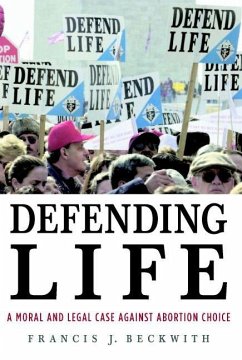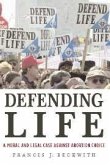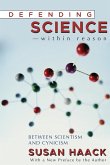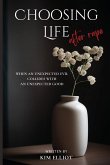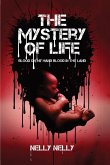Defending Life is the most comprehensive defense of the prolife position on abortion ever published.
Defending Life is arguably the most comprehensive defense of the prolife position on abortion - morally, legally, and politically - that has ever been published in an academic monograph. It offers a detailed and critical analysis of Roe v. Wade and Planned Parenthood v. Casey as well as arguments by those who defend a Rawlsian case for abortion-choice, such as J. J. Thomson. The author defends the substance view of persons as the view with the most explanatory power. The substance view entails that the unborn is a subject of moral rights from conception. While defending this view, the author responds to the arguments of thinkers such as Boonin, Dworkin, Stretton, Ford, and Brody. He also critiques Thomson's famous violinist argument and its revisions by Boonin and McDonagh. Defending Life includes chapters critiquing arguments found in popular politics and the controversy over cloning and stem cell research.
Table of contents:
Part I. Moral Reasoning, Law, and Politics: 1. Abortion and moral argument; 2. The Supreme Court, Roe v. Wade, and abortion law; 3. Abortion, liberalism, and the neutral state; Part II. Assessing the Case for Abortion-Choice and Against Human Inclusiveness: 4. Science, the unborn, and abortion methods; 5. Popular arguments: pity, tolerance, and ad hominem; 6. The nature of humanness and whether the unborn is a moral subject; 7. Does it really matter whether the unborn is a moral subject? The case from bodily autonomy; Part III. Extending and Concluding the Argument: 8. Cloning, bioethics, and reproductive liberty; 9. Conclusion - a case for human inclusiveness.
Hinweis: Dieser Artikel kann nur an eine deutsche Lieferadresse ausgeliefert werden.
Defending Life is arguably the most comprehensive defense of the prolife position on abortion - morally, legally, and politically - that has ever been published in an academic monograph. It offers a detailed and critical analysis of Roe v. Wade and Planned Parenthood v. Casey as well as arguments by those who defend a Rawlsian case for abortion-choice, such as J. J. Thomson. The author defends the substance view of persons as the view with the most explanatory power. The substance view entails that the unborn is a subject of moral rights from conception. While defending this view, the author responds to the arguments of thinkers such as Boonin, Dworkin, Stretton, Ford, and Brody. He also critiques Thomson's famous violinist argument and its revisions by Boonin and McDonagh. Defending Life includes chapters critiquing arguments found in popular politics and the controversy over cloning and stem cell research.
Table of contents:
Part I. Moral Reasoning, Law, and Politics: 1. Abortion and moral argument; 2. The Supreme Court, Roe v. Wade, and abortion law; 3. Abortion, liberalism, and the neutral state; Part II. Assessing the Case for Abortion-Choice and Against Human Inclusiveness: 4. Science, the unborn, and abortion methods; 5. Popular arguments: pity, tolerance, and ad hominem; 6. The nature of humanness and whether the unborn is a moral subject; 7. Does it really matter whether the unborn is a moral subject? The case from bodily autonomy; Part III. Extending and Concluding the Argument: 8. Cloning, bioethics, and reproductive liberty; 9. Conclusion - a case for human inclusiveness.
Hinweis: Dieser Artikel kann nur an eine deutsche Lieferadresse ausgeliefert werden.

